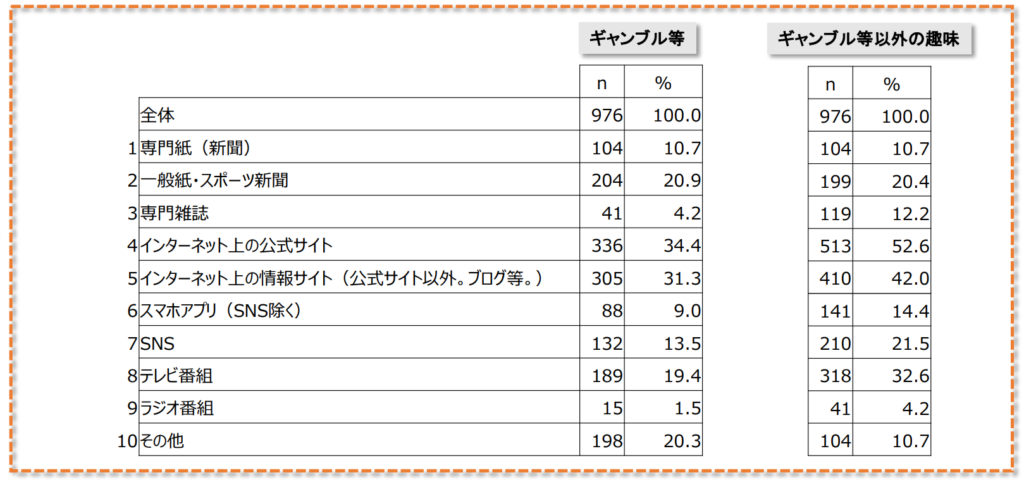In March 2021, the Consumer Affairs Agency of Japan conducted a comprehensive survey to assess the public’s perception and behavior towards gambling, including potential implications for online casinos. This survey covered a wide range of topics from the types of gambling people engage in to their understanding of gambling addiction and the effectiveness of current preventive measures.
Survey Overview
Conducted via an internet questionnaire in January 2021, the survey included responses from 5,000 Japanese men and women aged 20 to 79. The purpose was to gather detailed information on the gambling habits and awareness levels of the general population in Japan.
The following categories were set in this survey.
Horse racing, boat racing, bicycle racing, auto racing, pachinko, pachislot, lottery (including lotto numbers), soccer lottery, online gambling (excluding horse racing, boat racing, bicycle racing, auto racing), overseas casinos, etc.
Reference: Results of an awareness survey regarding consumption behavior related to gambling (2021 March)
Key Findings from the Survey
Gambling Habits
- Participation in Gambling: About 19.5% of respondents admitted to engaging in gambling themselves, with a higher percentage (30.5%) when including family members who gamble.
- Types of Gambling: The survey showed that lotteries are the most popular form of gambling (53.9% participation), followed by pachinko (32.9%) and horse racing (39.4%).
- Spending Habits: The amount spent on gambling varies by type. For horse racing, 15.3% bet 1,000 yen or less, while 68.1% spent between 1,001 and 10,000 yen. Pachinko saw 54.2% of players spending between 1,001 and 10,000 yen per session.

1.Horse Racing, 2.Boat Racing 5.Pachinko 9 and10.Online Casino or Bookmaker

34.4% says offficial website, and 31.3% says blog exclude social medias. It shows the importance of SEO.
Perceptions and Awareness
- Gambling Perceptions: Approximately 40% of respondents consider gambling a hobby or a form of relaxation within reasonable limits. However, 20% view it as risky and prefer to avoid it.
- Gambling Addiction Awareness: Knowledge about gambling addiction remains low, with a significant portion of the population unaware of its signs and consequences. The main sources of information on gambling addiction were TV and radio broadcasts.
Consumer Issues and Online Casino Implications
- Consumer Issues Related to Gambling: Consumers reported various issues related to gambling, including poor service quality and misleading advertising. For example, 15% felt that the product quality or service was much worse than expected.
- Online Casino Potential: The insights into consumer attitudes towards gambling as a leisure activity suggest a potential market for online casinos. The data on consumer dissatisfaction also highlights the need for online casinos to prioritize customer satisfaction and transparency.
Recommendations Based on the Survey
Given the survey findings, the Consumer Affairs Agency has highlighted the need for enhanced awareness programs tailored to different demographics. These programs aim to:
- Increase Understanding of Gambling Laws: Clarify the legal aspects of gambling to prevent illegal activities.
- Improve Gambling Addiction Awareness: Expand outreach and education about the risks of gambling and the signs of addiction.
- Support for Affected Individuals: Increase support networks and consultation options for those affected by gambling-related issues.
Conclusion
This survey underscores the complexities of gambling behaviors and perceptions in Japan and provides insights that can be extrapolated to understand how Japanese consumers might interact with online gambling platforms. By applying these insights, online casino operators can better align their operations with consumer expectations and regulatory requirements, ultimately leading to a more responsible and successful business model. The Consumer Affairs Agency remains committed to addressing these challenges and improving consumer protection and support related to gambling.

